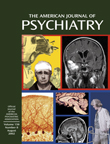Remission in Major Depressive Disorder: A Comparison of Pharmacotherapy, Psychotherapy, and Control Conditions
Abstract
OBJECTIVE: The aim of this study was to assess the percentages of full remission in studies of patients with major depressive disorder in which pharmacotherapy, psychotherapy, and control conditions were directly compared. METHOD: Computerized searches of the MEDLINE and PsychINFO databases up to November 2000 were used to identify six multiple-cell randomized, controlled, double-blind trials for well-defined major depressive disorder in which medications, psychotherapy, and control conditions were directly compared and for which remission percentages were reported. RESULTS: The studies included a total of 883 outpatients with mild to moderate, primarily nonmelancholic, nonpsychotic major depressive disorder. Treatment duration ranged from 10 to 34 weeks (median=16 weeks). An intent-to-treat analysis indicated that, according to measurements by independent blind raters, antidepressant medication (tricyclic antidepressants and phenelzine) and psychotherapy (primarily cognitive behavior and interpersonal therapies) were more efficacious than control conditions, but there were no differences between active treatments. The percentages of remission for all patients randomly assigned to medication, psychotherapy, and control conditions were 46.4%, 46.3%, and 24.4%, respectively. Furthermore, significantly more patients dropped out of control conditions (54.4%) than either treatment with medication (37.1%) or psychotherapy (22.2%). CONCLUSIONS: Both antidepressant medication and psychotherapy may be considered first-line treatments for mildly to moderately depressed outpatients.



